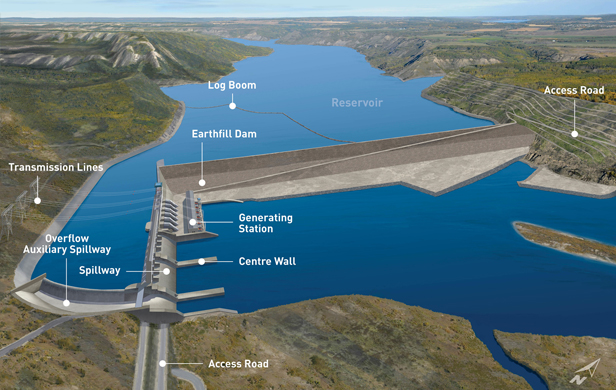B.C. First Nation Chiefs Oppose BC Hydro’s Site C Hydroelectric Megaproject
It is crucial that companies must take all factors, internal and external, into consideration before proposing a project plan. First Nation treaties have always been an external factor that companies must pay close attention to. It is important for companies to respect First Nation treaty settlements because violating these terms will not only cause delay in a project’s plan, it will also bring negative attention to the company.
B.C. Hydro’s $8-billion dam Site C hydroelectric megaproject has been brought to the attention of the First Nation chiefs, as well as the federal government. This dam would stretch 83 kilometres across Peace River, flooding 5,550 hectares of land. It has been argued that with the growing population in B.C., clean hydroelectric is necessary. However, building this dam comes with a high cost. It will destroy farmland and wild habitat, and it will affect First Nations fishing and opportunities and practices. First Nation chiefs are opposing this megaproject because the Peace River valley is titled to them under an 1899 treaty. This matter continues to wait for the pending federal government decision as to whether or not this project is given a ‘thumbs up’.
It is evident that First Nation issues have a major impact on businesses, which ties in with the topic of business ethics. B.C. Hydro may choose to deal with this situation by altering their business model. Some characteristics the company should take into consideration include: key activities (problem solving), value propositions (risk reduction), and key resources. For centuries, the First Nation have worked hard to protect their land and resources, and they should not be stripped from the rights to their property for a company’s benefit.
